
By ANDREW POWELL
Published: June 6, 2015
MUNICH — After the genetic mismatch of Kirill Petrenko and Gaetano Donizetti here, it was a relief to watch the conductor easily navigate and ignite the tone rows of Lulu last week (May 25 and 29) at the National Theater. Happily he did so using Cerha’s reconstitution of Act III and supported by an eloquent, virtuosic Bavarian State Orchestra, now truly his orchestra twenty months beyond the systemic jolt of the handover from Kent Nagano.
The GMD conveyed the differing compositional powers of each act almost entirely through soft, finely balanced ensemble, favoring transparency. Where the music rose dynamically, as in his ardent account of the palindromic Act II Zwischenspiel or the pithy societal interjections of the Paris scene, its contours and colors palpably stunned the capacity audience.
For these reasons alone these were luxurious traversals of Berg’s stimulating, exacting, 185-minute score. They revolved, though, not around Petrenko but upon the musicianship of the charming and beautiful Marlis Petersen, 47, who drew rapturous applause at evening’s end.
Meek early on, she sang out fully in the anti-heroine’s Act I duettino with the Painter (Rainer Trost on vivid form) and gauged her sound with Lied-art intelligence — but a diva’s command of the stage — from that point forward. The bright firm voice sailed into the house with greater body of tone than many a Lulu, shaded emotionally and locked into Berg’s text.
Having first essayed the role sixteen years ago in Kassel, Petersen has developed crisp, moving inflections for its unaccompanied dialog and Sprechstimme, and on these nights she fashioned from every last morsel the composer provides a gutsy, honest, amusing, vulnerable and above all integrated portrayal.
Daniela Sindram had a harder time making an impact as the pivotal Gräfin Geschwitz in this new production. In fact the mezzo barely stood out at all because director Dmitri Tcherniakov (pictured with the soprano) put her in pants, muting her sexuality and defeating the counterforce Berg intended to the men around Lulu. (Has Tcherniakov only this narrow grasp of what it means to be a lesbian?)
But she sang expressively, with a golden, even timbre, purity of line and good diction, and she capped her interrupted London monologue with a ravishing Lulu! Mein Engel! That last outpouring endured the distraction of Lulu’s death on stage, contrary to Berg’s plan, and so the drama ended out of kilter as the tempos slowed, and anticlimactic.
Lyric tenor Matthias Klink introduced a sweet-toned Alwa whose volume lessened in high-lying phrases. Bo Skovhus, as his father and Lulu’s lethal client, made a perfect foil for Petersen, magnetic of gesture and clever in pointing the text, even if his tenorial baritone lacked ideal resonance. In the supporting roles, besides Trost, Wolfgang Ablinger-Sperrhacke’s mellifluous turn as the Marquis stood out.
Like most productions at Bavarian State Opera nowadays, this Lulu will look its best through camera lenses rather than from a seat in the theater. Tcherniakov sets all scenes in one static grove of glass panels, much as he locked us in a gray seminar room for his last work here, Simon Boccanegra. Glass of course is an upgrade: it affords depth, allows vivid use of light and overcomes staging challenges, such as when characters scenically snoop. But only the panning and zooming of cameras can make up for missing spectacle in this case.
During Berg’s several Zwischenspiele — intended for scene changes tracing Lulu’s progress and retrogression — the director populates the background panels with stiffly animated mimes, like mannequins in shop windows. Perversely, given today’s common use of projections, he offers no film for the Filmmusik, but a roving spotlight signals its crucial midpoint.
Placement of the panels forces most of the crowd in the Paris scene behind glass, and Tcherniakov drably lines everyone up in a row. Otherwise he strongly shapes and moves the individual characters and, with the one misstep of Geschwitz’s costuming, engages the viewer convincingly, avoiding cliché and graphic violence.
Today’s performance of Lulu, the fourth in a run of five, streams live at noon, New York time, at www.staatsoper.de/tv. (Although named “Staatsoper.TV,” the service is not accessed at that domain.) Three performances are scheduled for September, when Petrenko hands over to Cornelius Meister.
Photo © Wilfried Hösl
Related posts:
Benjamin and Aimard
U.S. Orchestras on Travel Ban
Mastersingers’ Depression
Netrebko, Barcellona in Aida
Pintscher Conducts New Music
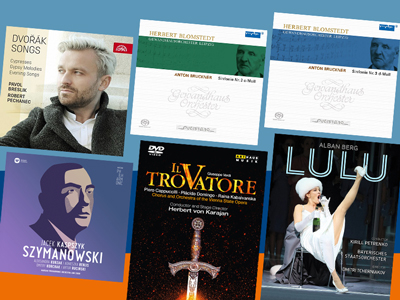
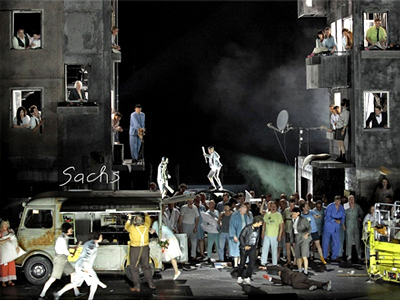
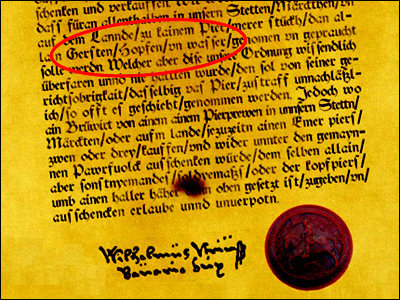
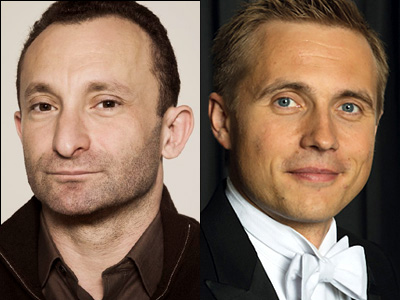


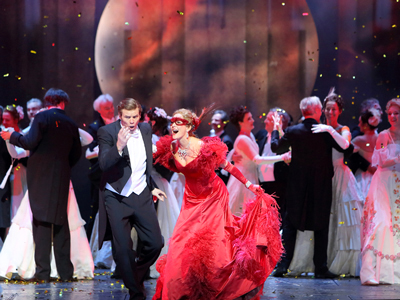
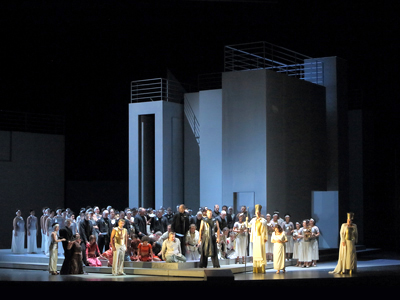
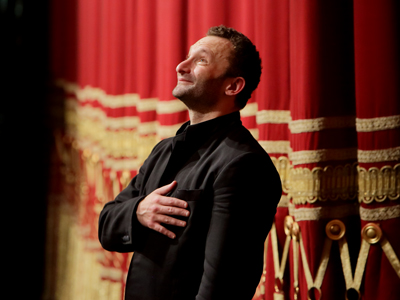
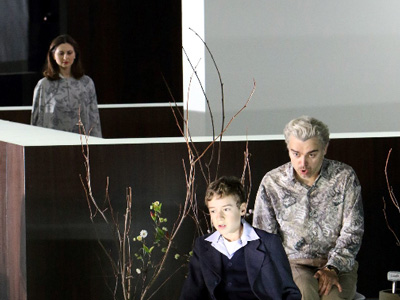

Concert Price Check
Saturday, September 3rd, 2016By ANDREW POWELL
Published: September 3, 2016
MUNICH — Visiting orchestras cost more for concertgoers. But why exactly? Several factors govern ticket prices on tours, often mitigating each other, and all have a bearing this month as three orchestras from this city hit the road:
— Bavarian State Orchestra (BStO) with Kirill Petrenko, general music director
— Munich Philharmonic (MPhil) with Valery Gergiev, chief conductor
— Bavarian Radio Symphony Orchestra (BRSO) with Daniel Harding, guest conductor
Here at home these orchestras cost as follows, sampling the top prices for a regular concert without subscriber discount: BStO in the National Theater, U.S. $78; MPhil in the Gasteig, $68; BRSO in the Herkulessaal, $73. Tickets in all price categories include bus and train fares to and from the venue within a 25-mile radius.
Government subsidy, at the federal, state, and in the MPhil’s case city levels, holds down prices to ensure that all Munich audiences can afford to attend. It does not necessarily vanish on tour, at least not within Europe.
For instance, at Berlin’s Musikfest this month, a six-hour drive from here, you would pay a reasonable and consistent top price of $100 for the visiting BStO, MPhil or BRSO, with subsidy applying both to the festival and, federally, to the three German orchestras.
Lack of subsidy may seem to explain exorbitant prices at Lucerne’s Sommer-Festival in Switzerland. Or is a profit motive kicking in? Actually a third factor causes them: currency exchange and the robust Swiss franc. Lucerne, just four hours by road from Munich, wants $245 and $296 for the BStO and MPhil, respectively.
That last detail raises the issue of perceived worth. Why would Lucerne charge a premium for one Munich orchestra over another when Berlin prices all three equally? For that matter, why does Berlin ask more for visiting orchestras than for its own Konzerthaus-Orchester (at a $69 top, staying with the “regular concert without subscriber discount” benchmark) or Berlin Philharmonic ($84) when subsidy applies?
The concert presenter directly, and the concertgoer ultimately, places a value on an orchestra in part as a function of geography. In the small Swiss city but not in the German capital, Gergiev’s orchestra (or Gergiev) is valued more highly than Petrenko’s (or Petrenko). In Berlin, people are willing to pay more to hear out-of-town musicians, a flip side to familiarity breeding contempt.
Price-comparing assumes events have been priced to sell out, and sell out at roughly the same pace. Which in turn assumes presenters know their job. They may. But objectively the worth of an orchestra cannot rise or fall by the tour stop.
If beauty is in the ear of the beholder, the Milanese are more attuned than most. So say Teatro alla Scala’s managers by setting a top of $162 for the BStO’s concert there — far below Lucerne prices yet still double the tag at home. Low government funding in Italy helps shape their thinking, rather than any attempt to gouge, though it will make La Scala’s big platea hard to fill.
Otherwise prices vary against a mental cushion: presenters’ realistic belief that ticket buyers will allow for some unknown but fair travel expense being passed along to them, unaware whether such expense has been covered by grants. Traveling more widely than the other orchestras this time, the BStO costs $94 in Paris, $107 in Vienna and $117 in Luxembourg.
Back in Germany on dates in between those stops, the limited revenue potential of relatively small halls may explain BStO top prices in the range of $118 to $144 for Bonn, Dortmund and Frankfurt. Either that, or someone is profiting, an alien notion when the very existence of orchestras requires subsidy.
Presenters of visiting orchestras are indeed on occasion out to make money, just as they do with non-classical artists. NBS in Tokyo has been a world-renowned price-gouger. In Munich the busy presenter MünchenMusik often prices aggressively. There are several more.
What of three Munich orchestras touring at the same time? Music contracts here commonly run “Sept. 1 to Aug. 31,” with the summer months tail-ending the term ostensibly to provide time off. In practice this structure brings chances to earn extra income at festivals instead. September becomes an odd month: the musicians need a break and audiences are sated from summer performances; the main season is supposed to start yet nobody wants to get down to it. So a window opens for touring.
Photo © KKL Luzern Management AG
Related posts:
Concert Hall Design Chosen
A Complete Frau, at Last
Mastersingers’ Depression
Netrebko, Barcellona in Aida
Portraits For a Theater
Tags:Bavarian Radio Symphony Orchestra, Bavarian State Orchestra, Bayerisches Staatsorchester, Berlin, Bonn, Commentary, Daniel Harding, Dortmund, Frankfurt, Gasteig, Herkulessaal, Kirill Petrenko, KKL, Lucerne, Luxembourg, Luzern, Milan, München, MünchenMusik, Münchner Philharmoniker, Munich, Munich Philharmonic, Musikfest Berlin, National Theater, NBS, Paris, Symphonie-Orchester des Bayerischen Rundfunks, Teatro alla Scala, Valery Gergiev
Posted in Munich Times | Comments Closed